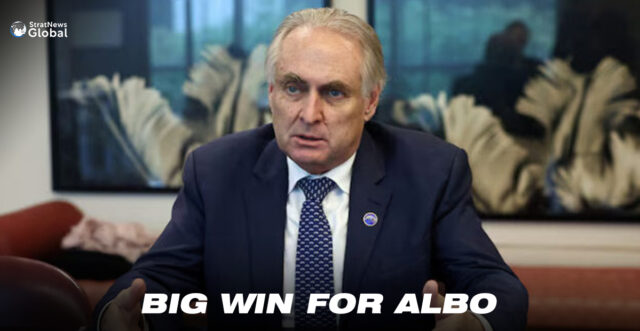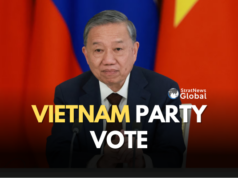Australian goods may gain a competitive edge in the US market, helping businesses increase exports, Trade Minister Don Farrell said on Friday, after US President Donald Trump decided to retain the minimum tariff rate of 10% for Australia — a move seen as a positive signal for bilateral trade ties.
Trump set higher import duties of 10% to 41% starting in seven days for 69 trading partners including a 35% duty on many goods from Canada, 50% for Brazil and 15% for Australia’s south Pacific neighbour New Zealand.
“What this decision means in conjunction with all of the other changes to other countries is that Australian products are now more competitive into the American market,” Farrell told reporters in Adelaide.
“We will assist all of our exporters in ensuring we take advantage of this situation and increase the volume of exports.”
New Zealand-US Talks
New Zealand Trade Minister Todd McClay said he was hoping to have talks with his US counterparts.
“The first step will be to talk to them directly. And we’ve engaged in a lot. In fact, it’s been very good engagement,” he told Radio New Zealand.
Trade Talks
Trump’s decision to put Australia among countries facing the lowest tariff levels will be a relief for Prime Minister Anthony Albanese after the opposition criticised him for not meeting the US president in person.
But Farrell said Australia’s negotiations helped it to retain the baseline tariff rate.
‘Vindication For The Albanese Government’
“This is a vindication for the Albanese government and particularly the prime minister in the cool and calm way we have conducted diplomacy with the United States,” Farrell said.
Australia last week eased restrictions on beef imports from the United States, potentially smoothing trade talks with Trump, although Albanese said the decision had long been considered and was not related to any trade negotiations.
(With inputs from Reuters)





